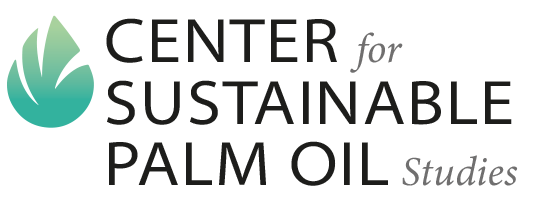
When palm oil is consumed and utilised on the mass global scale that it is currently, will there ever be a practical solution to mitigate its effects on the rainforest and recover the vital ecosystems that have been damaged, in the imperative attempt to save our planet? The production of this versatile vegetable oil has led to deforestation for the past 100 years, and has been one of the biggest contributors to the destruction of the 50% of the rainforest that has already been destroyed, but what can be done to prevent the devastation?
The palm oil industry has been growing exponentially since the early 20th century when it travelled from West Africa to South-East Asia and became commercialised. Palm oil is in countless products due to the unique properties that it possesses whilst also being cheap, abundant, and easy to harvest. Around 50% of packaged products on supermarket shelves contain palm oil; from margarine because it is semi-solid at room temperature (keeping the product spreadable) to lipstick because it retains colour well whilst being colourless and odourless itself. Palm oil is also resistant to oxidation, yielding a long shelf life.
Palm oil has many benefits for countries and small holder farmers. It is an important crop for the GDP of countries emerging from poverty and farming has contributed to poverty reduction and economic growth. It is important to consider the 570,000 people employed in the Malaysian palm oil industry alone who rely on the palm oil industry as an important source of income to provide for their families before jumping to the conclusion that palm oil production should be eradicated altogether to allow the rainforests to take back the space that they have been deprived of.
Yet on the contrary, tens of millions of Malaysians and Indonesians rely on the rainforest for resources. Palm oil plantations are eating away at their source of life, making life considerably more challenging for the native people. Furthermore, there are still issues with child labour and the exploitation of workers in the industry.
Deforestation and the draining of peatlands are the result of the ever-growing demand for pam oil. Rainforests are the oldest living ecosystem that has taken 70 million years to stabilise and become perfectly balanced. Rainforests are located around the equator in Central and Southern America, Congo, Madagascar, and Southeast Asia. A rainforest is most simply an area of tall trees with a high amount of rainfall however they are also the most biodiverse places on Earth with extremely intricate, delicate, and mature ecosystems. Rainforests cover around 6% of the Earth’s total surface area but they are home to around 80 % of Earth’s terrestrial species. Rainforests are the origin of around 80% of the food we eat, and 200 different tree species can live in just one hectare of rainforest.
This three-dimensional habitat is vital to us as human beings. The rainforest is the Earth’s largest sink of carbon dioxide, releasing oxygen for us to breathe. Also, 25 % of natural drugs that we use are sourced from the rainforest. By cutting down and burning the rainforest, we are limiting any medical advancements that we could have in the future.
Research has suggested that 300 football fields of rainforest is cleared every hour. Rainforests are essential to millions of species, as well as forest peoples and our atmosphere. When rainforest is cleared it causes species to perish and forces animals to move on. Also, when we constantly destroy habitats that have taken millions of years to stabilise, we can ultimately cause a whole ecosystem to collapse; something that cannot just be replaced or repaired.
Burning the rainforest is a popular and fast way of removing the trees and is commonly used when making space for the regimented lines of oil palm trees. The burning itself has a severe impact on our planet and contributes to climate change. Often millions of animals are burnt alive, and many are forced to move out of their established homes. The loss of habitat has played a critical part in endangering animals like the orangutans, Sumatran rhino, Pygmy elephant of Borneo and Sumatran tiger.
When the loss of forest is combined with the burning of trees, which releases carbon dioxide, and the draining of peatlands, millions of tons of greenhouse gasses are released into the atmosphere, preventing the sun’s energy from reflecting back out into space and resulting in the warming of our globe. Harvard and Columbia university published a study that estimated 91,600 people died prematurely from smoke exposure in Indonesia in 2015. The Indonesian government reported only 19 deaths. Many of these fires were deliberate and caused by large commercial companies wanting space for oil palm plantations.
Peatlands are wetlands formed by the decomposition of plants and vegetation. Peatlands are currently covering around 3% of Earth’s land, and they are an essential store of carbon which is released by dead organisms. They act as a sponge and therefore minimise flood risk, as well as providing a biodiverse habitat for many creatures. Just like rainforests, people, governments, and companies clear them to provide land for oil palm plantations. However, when a peatland is drained, the peat is exposed to the air and oxidises, forming carbon dioxide and polluting the atmosphere. Dry peat is extremely flammable. This then allows forest fires to become out of control and destroy even more precious rainforest.
During the production of palm oil, up to 25 herbicides and pesticides are used. These chemicals pollute the water in the area. This can kill other plants and animals, whilst also contaminating the water source of local communities. This can result in increased illness and deaths for the local people. Villages often have no choice but to seek alternative water sources which can displace them from their homes.
On the other hand, oil palms are the most efficient vegetable oil plants to grow. The trees produce more oil per land than any other equivalent vegetable oil crop. Palm oil supplies 40% of the world’s global oil demand using just 6% of the overall land used for oil crops. Therefore, substituting palm oil for an alternative vegetable oil is not the solution to the palm oil predicament.
Many organisations are working towards shifting the industry to completely sustainable and moving towards illegalising deforestation. A simple solution is extremely difficult and finding a balance between protecting our planet and developing the world we live in has proving difficult in many other environmental contexts such as sourcing energy. WWF and RSPO (Roundtable on Sustainable Palm Oil) are two companies working towards a sustainable industry in palm oil production. In 2012 the UK Government set a commitment for 100% of palm oil in the UK to be from sustainable sources by 2015. The UK did not meet this target however they have set an example, leading the movement, having more success than any other country.
The RSPO provide a label for sustainable palm oil producers who fit their criteria of reducing pesticides, emissions, deforestation etc. However, a report by Greenpeace suggests that farmers that have been awarded this label, and claim to be sustainable, are contributing to rainforest deforestation as much as other farmers. Therefore, there is a question over whether it is actually sustainable?
Transparency is proving to be an issue with companies and governments. In 2019, Indonesia banned products labelled ‘palm oil free’ in their supermarkets because of their reluctance to discourage people from purchasing products without palm oil. This is because Indonesia relies on the palm oil industry as such a substantial part of their economy.
If companies were more transparent about what their product contained and avoided using alias names on ingredients labels, then individuals would be able to make an informed choice over whether the product is worth purchasing by weighing up the impact and the necessity. This would allow us to limit the use of palm oil to essential items without substituting it for other vegetable oils that have an even more severe impact on the environment. By finding a balance, we are capable of achieving a sustainable palm oil industry that benefits all.
Original link: https://www.thisislocallondon.co.uk/news/19809676.palm-oil-predicament-sofia-wilson-farringtons-school/


